-
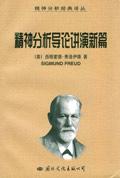
精神分析导论讲演新篇
精神分析学说是奥地利精神医生、心理学家弗洛伊德在20世纪创建的,其研究的对象主要是歇斯底里症患者,他发现歇斯底里的病原主要不是生理的因素,而是在于深刻的内在心里因素。他将这种内在的心理因素归结为“无意识性本能学”。所以将他的发现加以总结,形成了一种全新的、最浮创建的心理学说,宾能够将这一学说推广到哲学、宗教、文化领域。从而形成了庞大的思想体系。 本书共两部分内容:第一部分精神分析导论讲演新篇包括七讲内容;第二部分精神分析纲要包括精神及其活动和实践任务两章内容。 -
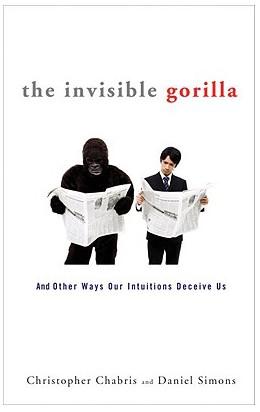
The Invisible Gorilla
Product Description Reading this book will make you less sure of yourself—and that’s a good thing. In The Invisible Gorilla, Christopher Chabris and Daniel Simons, creators of one of psychology’s most famous experiments, use remarkable stories and counterintuitive scientific findings to demonstrate an important truth: Our minds don’t work the way we think they do. We think we see ourselves and the world as they really are, but we’re actually missing a whole lot. Chabris and Simons combine the work of other researchers with their own findings on attention, perception, memory, and reasoning to reveal how faulty intuitions often get us into trouble. In the process, they explain: • Why a company would spend billions to launch a product that its own analysts know will fail • How a police officer could run right past a brutal assault without seeing it • Why award-winning movies are full of editing mistakes • What criminals have in common with chess masters • Why measles and other childhood diseases are making a comeback • Why money managers could learn a lot from weather forecasters Again and again, we think we experience and understand the world as it is, but our thoughts are beset by everyday illusions. We write traffic laws and build criminal cases on the assumption that people will notice when something unusual happens right in front of them. We’re sure we know where we were on 9/11, falsely believing that vivid memories are seared into our minds with perfect fidelity. And as a society, we spend billions on devices to train our brains because we’re continually tempted by the lure of quick fixes and effortless self-improvement. The Invisible Gorilla reveals the myriad ways that our intuitions can deceive us, but it’s much more than a catalog of human failings. Chabris and Simons explain why we succumb to these everyday illusions and what we can do to inoculate ourselves against their effects. Ultimately, the book provides a kind of x-ray vision into our own minds, making it possible to pierce the veil of illusions that clouds our thoughts and to think clearly for perhaps the first time. -
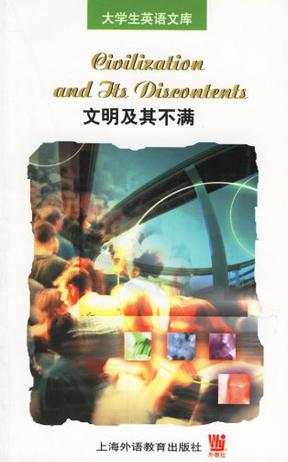
文明及其不满
《文明及其不满》英语规范、标准,行文流畅,适合文理各科大学生、研究生及广大英语自学者学习之用。“大学生英语文库”是一套面向中国大学生的英语系列读物,各本均为注释性读本,有助于通过研读文化经典,提高人文素养。《文明及其不满》是奥地利著名精神病学家、精神分析学派心理学创始人弗洛伊德晚年的作品之一。于1929年首次出版。作者在书中指出,人的本性是攻击性,以自我为中心,不断追求本能欲望的满足,而社会的发展则要求对个体的这种本能加以约束和控制。因而文明正是在个体对自由的追求和社会对遵从的要求这一永恒的对立和冲突中得以由低级向高级不断演进。 -
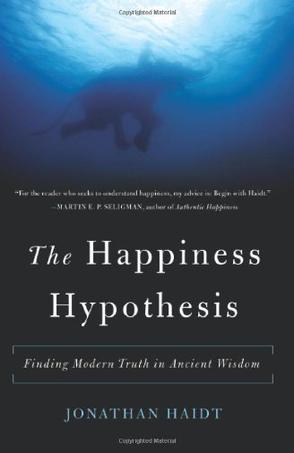
The Happiness Hypothesis
http://finance.sina.com.cn/xiaofei/consume/20060817/18052832122.shtml 你觉得下面两个人谁更幸福呢:一个是鲍勃(Bob),他是白种人,是个35岁的单身知识分子,喜好运动、英俊,住在阳光明媚的加利福尼亚,拿着10万美元的薪水,他在业余时间读书,或者去博物馆;另外一个是玛丽(Mary),65岁,她喜好交际,是个超重的普通黑人,要依靠透析。玛丽把她大部分的空余时间花在教堂活动中,与她的丈夫生活在纽约州多雪地带,全家收入为4万美元。 1. 婚姻和牢固的社会关系更为重要 在我开始阅读一些所谓的“幸福研究”方面的新书之前,我可能已经打赌鲍勃更幸福。但是,根据弗吉尼亚大学(University of Virginia)心理学家乔纳森•海德特(Jonathan Haidt)的研究,我可能错了。海德特将鲍勃和玛丽的案例写进了他的著作《幸福假设》(The Happiness Hypothesis)。海德特表示,在他的有关幸福的研究中,最重要的发现之一,就是在环境和人口结构层面的优势——诸如鲍勃的健康、财富、年轻和阳光——并非我们想象得那么重要。婚姻和牢固的人际关系更为重要。因此,玛丽有可能比鲍勃更幸福。 -
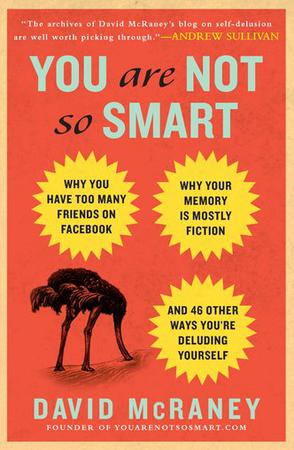
You Are Not So Smart
An entertaining illumination of the stupid beliefs that make us feel wise. You believe you are a rational, logical being who sees the world as it really is, but journalist David McRaney is here to tell you that you're as deluded as the rest of us. But that's OK- delusions keep us sane. You Are Not So Smart is a celebration of self-delusion. It's like a psychology class, with all the boring parts taken out, and with no homework. Based on the popular blog of the same name, You Are Not So Smart collects more than 46 of the lies we tell ourselves everyday, including: Dunbar's Number - Humans evolved to live in bands of roughly 150 individuals, the brain cannot handle more than that number. If you have more than 150 Facebook friends, they are surely not all real friends. Hindsight bias - When we learn something new, we reassure ourselves that we knew it all along. Confirmation bias - Our brains resist new ideas, instead paying attention only to findings that reinforce our preconceived notions. Brand loyalty - We reach for the same brand not because we trust its quality but because we want to reassure ourselves that we made a smart choice the last time we bought it. -
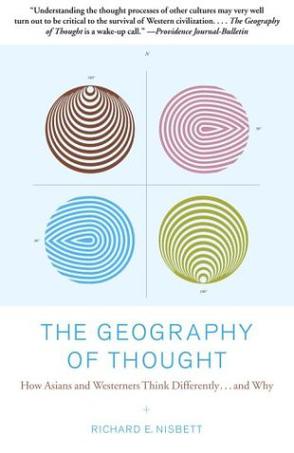
The Geography of Thought
From Publishers Weekly This book may mark the beginning of a new front in the science wars. Nisbett, an eminent psychologist and co-author of a seminal Psychological Review paper on how people talk about their decision making, reports on some of his latest work in cultural psychology. He contends that "[h]uman cognition is not everywhere the same"-that those brought up in Western and East Asian cultures think differently from one another in scientifically measurable ways. Such a contention pits his work squarely against evolutionary psychology (as articulated by Steven Pinker and others) and cognitive science, which assume all appreciable human characteristics are "hard wired." Initial chapters lay out the traditional differences between Aristotle and Confucius, and the social practices that produced (and have grown out of) these differing "homeostatic approaches" to the world: Westerners tend to inculcate individualism and choice (40 breakfast cereals at the supermarket), while East Asians are oriented toward group relations and obligations ("the tall poppy is cut down" remains a popular Chinese aphorism). Next, Nisbett presents his actual experiments and data, many of which measure reaction times in recalling previously shown objects. They seem to show East Asians (a term Nisbett uses as a catch-all for Chinese, Koreans, Japanese and others) measurably more holistic in their perceptions (taking in whole scenes rather than a few stand-out objects). Westerners, or those brought up in Northern European and Anglo-Saxon-descended cultures, have a "tunnel-vision perceptual style" that focuses much more on identifying what's prominent in certain scenes and remembering it. Writing dispassionately yet with engagement, Nisbett explains the differences as "an inevitable consequence of using different tools to understand the world." If his explanation turns out to be generally accepted, it means a big victory for memes in their struggle with genes. From Scientific American Nisbett, a psychologist and Distinguished University Professor at the University of Michigan at Ann Arbor, used to believe that "all human groups perceive and reason in the same way." A series of events and studies led him gradually to quite another view, that Asians and Westerners "have maintained very different systems of thought for thousands of years." Different how? "The collective or interdependent nature of Asian society is consistent with Asians' broad, contextual view of the world and their belief that events are highly complex and determined by many factors. The individualistic or independent nature of Western society seems consistent with the Western focus on particular objects in isolation from their context and with Westerners' belief that they can know the rules governing objects and therefore can control the objects' behavior." Nisbett explores areas that manifest these different approaches--among them medicine, law, science, human rights and international relations. Are the societal differences so great that they will lead to conflict? Nisbett thinks not. "I believe the twain shall meet by virtue of each moving in the direction of the other."